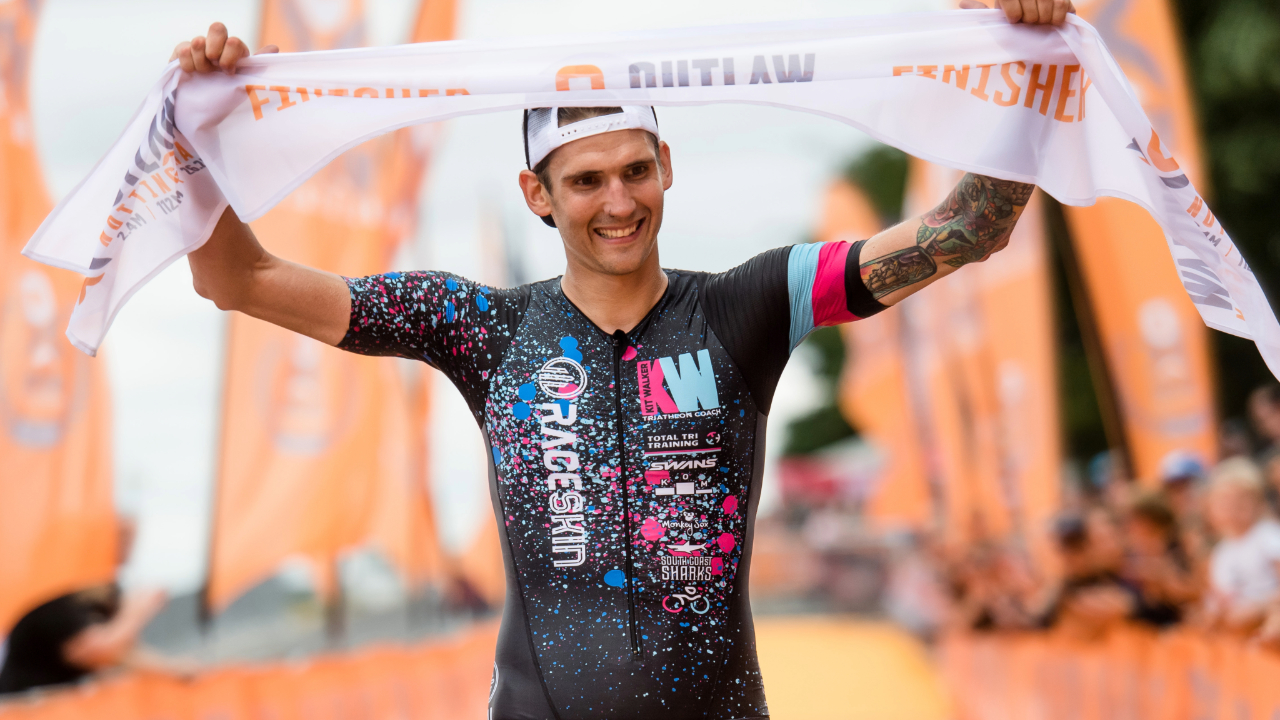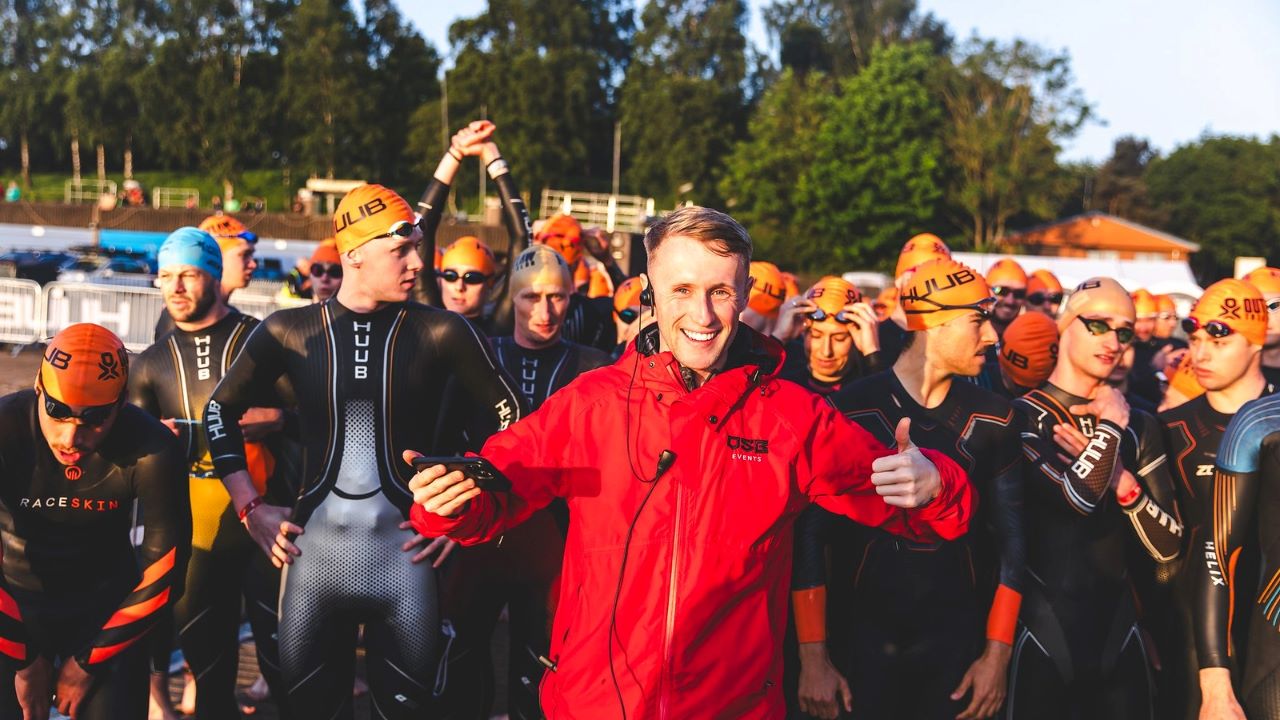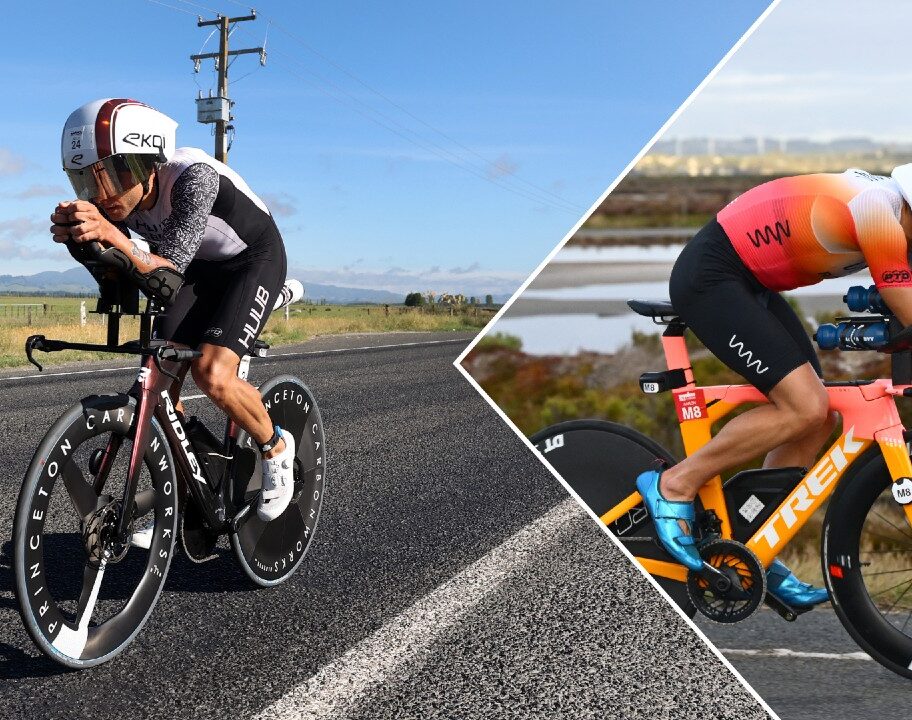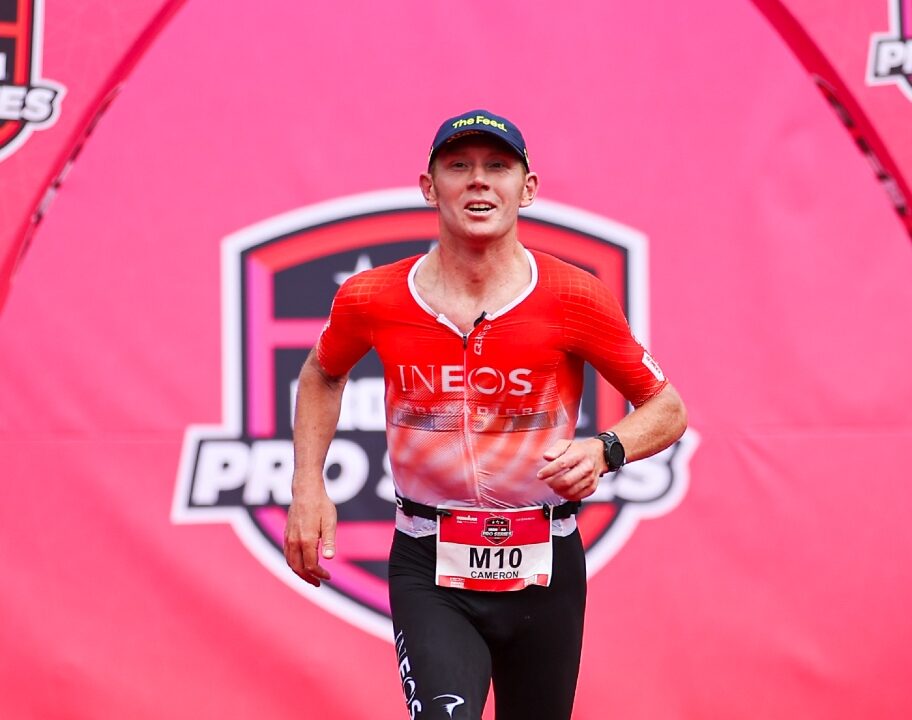You’ve done the training, got the kit and it’s almost time to race. But pre-race nerves have got you dreading your next triathlon start line – instead of looking forward to it! A few jitters is normal before a big race. But if pre-race nerves are taking all the joy out of triathlon for you, it’s time to take control.
We caught up with Outlaw race director Iain Hamilton, and triathlon coach Kit Walker – who has won Outlaw Nottingham three times and set the course record in 2017 – to get their expert insights on how to keep those pre-race nerves in check. So you can perform at your best, and actually enjoy race day.
Focus on the process, and the result will take care of itself
We can often find ourselves getting worked up over all the small details – or things that are ultimately out of our control. And while it’s important to pay attention to the details, and to come into the race with clear goals and plans. It’s also key to ensure that stressing over them doesn’t distract you from the bigger picture and the things you can control.
“A lot of the time people are worrying too much about the outcome of the race, whether that is time, or position,” says Kit. “Instead, focus on the process of the weekend – from registration and racking through to what you’re going to eat and when. Then finally onto the process of going through the swim, bike, run portions of the race. It may be an old cliché, but focus on the process and the result will take care of itself.”
Race director Iain Hamilton highlights the importance of thinking bigger picture instead of getting hung up on the little things. “As organisers, we often see people start to worry after tiny little specifics, rather than think about the bigger picture.”
“It’s important to get to the event weekend as healthy & prepared as possible. Look after yourself head to toe from the day you start training. You need the support of those around you. Ask them to join you in the journey – either coming out with you training, or just understanding what you are doing. Doing an Outlaw event is a commitment not just for the athlete, but all those that surround you.”
Get organised and try not to waste energy on pre-race nerves
A mistake we’ve all probably made at some point is putting so much head space and energy into being nervous about the race and thinking about all the things that could possibly go wrong. That we end up making silly mistakes and causing ourselves unnecessary stress before we’ve even started the race. Whether it’s forgetting vital bits of kit and having to do a mad – and expensive – rush around the Expo like some sort of game of triathlon supermarket sweep. Or not making note of the race morning timings and logistics.

“You’ll often encounter someone who’s forgotten something, or they’ve forgotten to charge their watch or power meter,” Kit says. Lay out everything you need the day before, talking it through with a friend or partner and going through each stage of the race in your head. This will help you to make sure you have everything you need.”
“We see time and time again, people doing 20+ hours of training per week,” Iain explains, “But then they don’t read or digest the race information. Or they don’t test the on course nutrition before race weekend. Even worse, you see people spending hours and hours on their feet and putting energy into being nervous the day before the race. Prepare your whole weekend – not just your race.”
Practice – a ‘dress rehearsal’ will help to keep your pre-race nerves in check
Often our nerves stem from feeling out of control, or trying to think through all the possible variables that could go wrong on race day. Practicing, preparing and going through all the logistics ahead of the actual race like a dress rehearsal can really help to alleviate the fear of the unknown.
“Practice what you’re going to do on race day. From your breakfast and pre-race nutrition, to setting up your bike and transition zone and getting your wetsuit on,” Kit recommends. “Look at the logistics and make sure you know how long the drive to the venue is and what the car parking set up is like. That way you’ll give yourself plenty of time and then you aren’t rushing – which inevitably leads to forgetting something.”
“I totally agree with Kit,” says Iain. “It’s all about preparation. Consider different weather options and how that will affect your race day – including your equipment and clothing choices. Expect the unexpected and plan for it – that way you’ll feel more in control if it happens. From snapped goggles, to punctures or dropped nutrition – take the time a week or two before the race to think about how you’d handle those situations, so you can plan (and pack) accordingly.”
Calm those swim-related pre-race nerves – it’s not as scary as you think
For first timers in particular, the swim is often the fear factor before doing a triathlon. But as Kit and Iain highlight, swim starts are very well managed by race organisers like Outlaw – and there are a few things you can do to make it more comfortable for yourself if you’re nervous.
“For the Outlaw Half events, the time trial format really helps to make the swim start a low stress part of the race,” Kit explains. “Just be honest with your predicted race time, get in at your own pace and settle down into your stroke.”
“For the Full event, there is a mass start. But the lake is wide, and you’ll be given guidance on where to start according to your predicted swim speed. Take your time and hold back 30-60 seconds at the start if you’re nervous. It might feel like you’re giving away time, but a calmer swim experience will set you up for a strong day across swim, bike and run.”

“Be realistic about what you want to achieve,” Iain emphasises. “At Outlaw, all the lakes that we use have lots of space – so if you want a clear swim, you’ll be able to stay out of the way along the lake edge. Let people go in front of you in the swim queue and start relaxed and confident. You’ll enjoy overtaking people later on in the event!”
“As organisers, we only set a very small number of swimmers off together for the Outlaw Half distances – usually just two people. We make sure we have the full width of the lake available, so there’s no cramped up swim start.”
“Believe in yourself” – Strategies to calm your pre-race nerves the night before your event
Planning and preparation will help to keep your mind occupied and ensure you’re not putting yourself through any unnecessary stress the day before the race. But once your bike is racked, your bags are packed and the carbs have been consumed. Your mind can start to spiral, with no distractions to stop you dwelling on your pre-race nerves. We asked Kit and Iain to share their words of wisdom for staying calm the night before the race.
“Reflect on some of the hardest training sessions you have done in the build-up,” Kit recommends. “Think about how you felt during and after, and what you did to get through them. Use these to build up confidence that you can do it. If it was easy, everyone would be able to do it.”
“A small amount of nerves and apprehension aren’t necessarily a bad thing. But believe in yourself, your training and reinforce to yourself the reason you signed up in the first place and why you are there.”
Nerves are normal
“No one sleeps well the night before, so this is normal!” says Iain. “Prepare, knowing that you won’t get a full night’s sleep.”
“Ensure you’ve checked your equipment and go over details such as the route to the venue for the morning and the race information.”
“Plan a podcast, film or something else to keep your mind from over thinking. And don’t forget – everyone gets nervous, including us race organisers!”
A few nerves before a race are usually a good thing – it means you care, and it’ll give you the adrenaline you need to go all in and get the best out of yourself. But it’s important not to let your pre-race nerves run wild. Follow Kit and Iain’s advice – control what you can control, plan your full race weekend, prepare for the unexpected and reflect on your training. And you’ll hit the start line with just the right balance of nerves and excitement.














